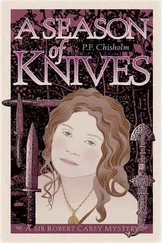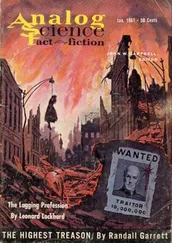P. Chisholm - An Air of Treason
Здесь есть возможность читать онлайн «P. Chisholm - An Air of Treason» весь текст электронной книги совершенно бесплатно (целиком полную версию без сокращений). В некоторых случаях можно слушать аудио, скачать через торрент в формате fb2 и присутствует краткое содержание. Год выпуска: 2014, ISBN: 2014, Издательство: Poisoned Pen Press, Жанр: Исторический детектив, на английском языке. Описание произведения, (предисловие) а так же отзывы посетителей доступны на портале библиотеки ЛибКат.
- Название:An Air of Treason
- Автор:
- Издательство:Poisoned Pen Press
- Жанр:
- Год:2014
- ISBN:9781464202223
- Рейтинг книги:5 / 5. Голосов: 1
-
Избранное:Добавить в избранное
- Отзывы:
-
Ваша оценка:
- 100
- 1
- 2
- 3
- 4
- 5
An Air of Treason: краткое содержание, описание и аннотация
Предлагаем к чтению аннотацию, описание, краткое содержание или предисловие (зависит от того, что написал сам автор книги «An Air of Treason»). Если вы не нашли необходимую информацию о книге — напишите в комментариях, мы постараемся отыскать её.
An Air of Treason — читать онлайн бесплатно полную книгу (весь текст) целиком
Ниже представлен текст книги, разбитый по страницам. Система сохранения места последней прочитанной страницы, позволяет с удобством читать онлайн бесплатно книгу «An Air of Treason», без необходимости каждый раз заново искать на чём Вы остановились. Поставьте закладку, и сможете в любой момент перейти на страницу, на которой закончили чтение.
Интервал:
Закладка:
P. F. Chisholm
An Air of Treason
Saturday 16th September 1592, morning
It was the devil’s own job, it truly was, thought Hughie Tyndale. How the hell had he agreed to it? Why had he agreed to it?
The internal voice that never missed a chance to jeer at him was quick with an answer. So ye wouldna hang, it said, why else?
“I’ll hang if I manage it,” Hugh said back to the jeering voice.
The jeering voice said nothing because this was plainly true. If you got caught killing someone, you generally hanged. All the more if they found out why you were killing him, which they probably would if they used the boot or the pinniwinks or whatever it was the English authorities used when they urgently wanted to find out something. And killing a cousin of the Queen would most certainly draw their attention.
He’d tried before to get close to the man he was to kill and failed miserably. Several times. That time in St. Paul’s Walk by Duke Humfrey’s tomb. The place had been crowded despite the plague running through London. It was full of ugly men in worn jacks, while Carey the Courtier, the man he was supposed to kill, had wandered by dressed in many farms’ worth of velvet and pearls, deep in conversation only a yard away.
Of course he hadn’t been intending to do the killing out in public. The first part of the plan was to go to work for the man, find out everything about him and pass it on to Scotland. How? He didn’t know, but someone would tell him, apparently. Then he would do the killing and if he could get away in time, he’d be free as a bird. That was according to the mysterious man who said he worked for the Earl of Bothwell. When the funeral had been held, Hughie could visit a certain goldsmith in London town and receive a pile of gold. Allegedly.
Hughie shifted his weight and consciously straightened his back. He’d do it, of course he would. He wouldn’t hang; he’d be rich. So now he wondered how he could be sure he stood out among all the mob of unemployed servingmen under the Cornmarket roof-without being so obvious about it that he tipped off the Courtier. Bothwell’s man had warned him, the Courtier is a lot cleverer than he looks or sounds.
Oxford Cornmarket, with its smart lead roof held up on round pillars down the centre of the street, was packed with men and quite a few women, people having come to the hiring fair from villages and towns for miles around. The Queen and all her Court and baggage and hangers-on were at last only seven days away. The city fathers and the university were in the last contentious stages of setting up the elaborate expensive pageantry of welcome. No doubt most of them were in meetings, speechifying at each other.
The whole of Oxford seemed to be armoured with scaffolding. The streets were clean for the first time in twenty-four years, and some of them were being newly paved, some boarded over.
A college steward was standing on a box, shouting aloud from a list.
“I want eight carpenters, four plumbers, five limners, eight labourers for college of Trinity,” he bellowed. “Thruppence a day until the Queen leaves, a bonus from my Lord Chamberlain if all work is done before the Queen arrives, another bonus if nothing is amiss when she leaves.”
Those were good terms. Some of the men standing around Hughie shifted toward the steward, even though several of them didn’t look like skilled men but like simple bruisers.
A few of the girls were surrounding a stout woman on another box, roaring her needs-laundresses, sempstresses, confectioners, cleaners. An entire new city was foisting itself awkwardly on the scholarly city of Oxford, like an eagle on a blackbird’s nest.
Hughie backed a little to the wooden pillars of the smart merchant’s house next to the church. Most of the men there were quite a bit smaller than him and a few looked at him sideways.
His quarry would come, of course he would. The Courtier needed at least one henchman and Hughie would be perfect for him. Where else was he going to find so cheap a servingman with Hughie’s abilities?
Hughie scanned the better-dressed men walking around amongst the people for hire. Most were stewards and college bursars, narrow-eyed, tight-pursed. A few were clearly harbingers for the Queen or the greater lords.
Hughie knew the Courtier was in town for sure, and would probably leave again on Sunday afternoon. Possibly earlier. He had arrived late on Friday night, dressed in hunting green with one spare mount and a lathered pony heavy-laden with packs. That was quite impressive, Hughie had to admit. It was more than forty miles from London to Oxford and he hadn’t really been expected so early-Hughie had been carefully buttering up Lord Chamberlain’s steward and making himself pleasant to the minor officials of his household on the assumption the quarry would travel with his father.
No, according to the horseboy Hughie had been paying on retainer at the main carter’s inn near Christ Church, the man had arrived Friday night, both horses and the pony exhausted, at around seven o’clock. Forty miles in a day-despite the heavy cart and pack horse traffic on the Oxford Road-meant he must have been using the higher causeway reserved for the Queen’s messengers, and galloping at least half the time. The man himself was tired but quite alert enough to make sure Hughie’s helper carried the heavy packs up to his room and then was tipped a sixpence to guard the door. The Courtier saw the host, paid for the room, and ate the ordinary for his dinner.
He had no henchmen with him, not one. Not even the surly-looking borderer who had been shadowing him in London. So it stood to reason that he would be in need of at least one follower. At least one.
Hughie peered through the shadowed forest of humanity again. He had to be there, where else would he find a servingman? He had to come.
“What’s your name?” came a snappy voice beside him.
It wasn’t the Courtier. Hughie looked as nervous and as thick as he could. “Oh ah, Hughie, an’ it please yer honour, Ah’m a…”
The steward tutted and passed on immediately. It was Hughie’s accent, he knew that. Not only was it a harsh voice, like a corncrake, but you could easily hear in it that his first language was Scotch not English. And although cheap, the Scotch were notoriously dangerous employees.
Someone who had been leisurely buying a pie from a nicely shaped girl under the portico opposite, spun round to look at him.
God above, it was him! Hughie did his best not to stare, modestly looking at the ground. The man was well-built, tall, chestnut hair under his hat and a goatee beard that needed trimming, extremely bright blue eyes and beaky nose, and a breezy manner that breathed of what he was and what he thought of himself.
Carey the Courtier was first cousin to the Queen in two different directions, one of them firmly on the wrong side of the blanket, according to Bothwell’s man’s clerk. His father’s coat of arms said so proudly, boasted of it in fact, blazoned with three Tudor roses. You couldn’t hardly put it plainer, the clerk had sneered, and the English heralds had allowed it, the scandalous Papistic perverts.
This was the man he had to kill: Sir Robert Carey, youngest son of the Lord Chamberlain, Baron Hunsdon, connected by blood and marriage with half the Court as well as the Queen. Carey was currently a controversial deputy warden on the English West March, where he was interfering in things that didn’t concern him.
Mind, he hadn’t looked quite so full of himself the time he’d been pointed out to Hughie at the Scottish Court, but that had been in the summer and he’d had a stressful few days there.
Carey did seem a little worried and he hadn’t seen a barber for a couple of days either. Would he remember the disastrous last time Hughie had made a play to work for him? That was the point. God, those musicians had been angry.
Читать дальшеИнтервал:
Закладка:
Похожие книги на «An Air of Treason»
Представляем Вашему вниманию похожие книги на «An Air of Treason» списком для выбора. Мы отобрали схожую по названию и смыслу литературу в надежде предоставить читателям больше вариантов отыскать новые, интересные, ещё непрочитанные произведения.
Обсуждение, отзывы о книге «An Air of Treason» и просто собственные мнения читателей. Оставьте ваши комментарии, напишите, что Вы думаете о произведении, его смысле или главных героях. Укажите что конкретно понравилось, а что нет, и почему Вы так считаете.












